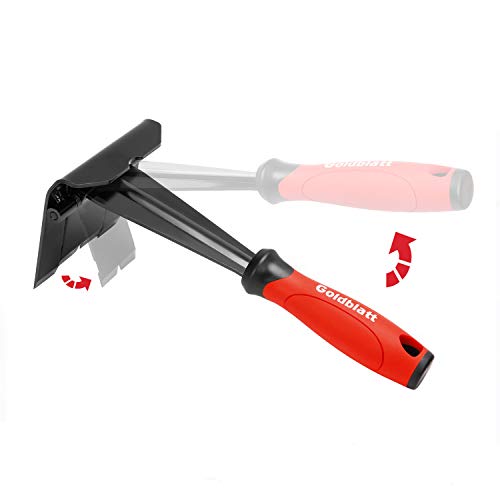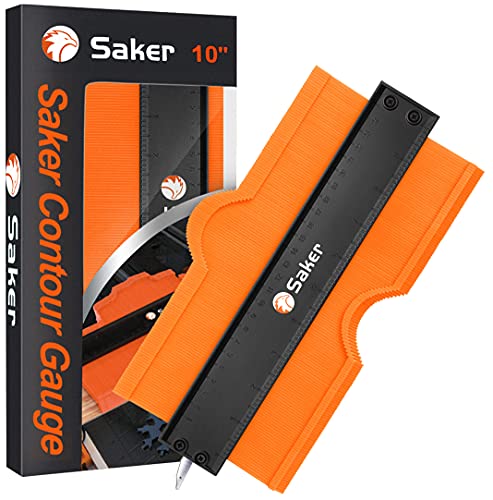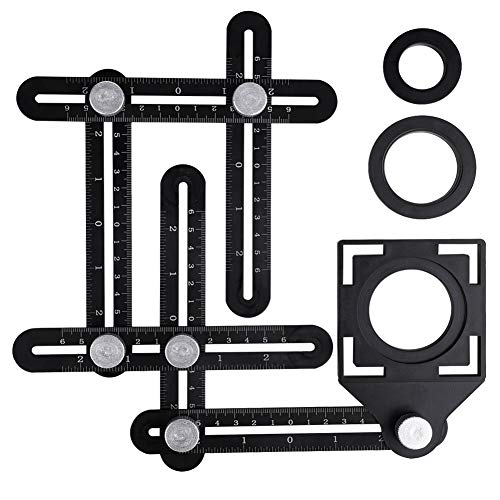I'm home on medical leave right now following some surgery so I've been a bit lax in checking in. Since I have a wife who is also sensitive to odors (I haven't been able to wear cologne in the 34 years we've been together!

I saw your post and thought I might try to add some information.
You're probably not going to find much, if anything, in the way of an MSDS (actually just an SDS in today's world) as most actual flooring falls into the category of "articled" items and is exempt from requiring an SDS. In lieu of this most manufacturer's, will simply provide an explanation letter that states the product is classified as an articled item and doesn't require an SDS because it is considered non-reactive and inert in it's finished state.
That being said...
I took a look at the manufacturer's website. Their specifications for their vinyl products show that they are a "rigid" core type of product. This generally means that they are what we refer to in our industry as an SPC (Stone / Plastic composite). These types of floors are constructed in layers. SPC refers to the inner or "core" of the product.
Your product appears to have a foam or closed cell urethane attached cushion. You would have to contact the manufacturer to get specifics as to exactly what they are using. This backing material provides a padding layer to the product that quiets the floor from sound transmission as well as building some minor forgiveness for subfloor imperfections (undulations) into the product.
The next layer would be the core or SPC. SPC's generally are made from only a few components the main one being stone dust (usually limestone), PVC (plastic), and some binding agents. By weight these components are about 85% stone dust and the remainder being PVC and binder (often times clay). Since this type of flooring, as stated, is "rigid" in nature it typically does not use phthalates or esthers (oils) to make the product flexible.
The next layer would consist of films that give the product its appearance. These films are very thin, only thousandths of an inch thick. They are colored but translucent to allow light to pass through to give the product depth visually. There are anywhere from 1-3 "backing" films placed one on top of the other to give the product it's overall color. Then there will be multiple "decor" films that create the pattern for the the product.
Once these layers are heated and fused together then the manufacturer will apply their specific wear layer or topcoat to the product that gives the product protection from wear. The most common wear layer chemically is urethane, either by itself or modified with an aggregate such as quartz, ceramic bead, aluminum oxide, or diamond. There are other types of finish coats besides urethane as well but they are much rarer here in the U.S. They include things such as surlyn, or acrylic as well as a few proprietary topcoats. By nature, these topcoats are incredibly non-reactive and chemically stable so that they don't react to possible stainants.
Looking a bit further...
I also noticed on the company's website that they list their products as being FloorScore certified and pthalate free. This is a good thing. FloorScore is an industry wide, 3rd party certification program that confirms that a product meets certain standards specific to "off gassing" of VOC's (Volatile Organic Compounds) far below even Federal standards. In fact they are in line with SCAQM standards (these are California product emission standards which are much more stringent than Federal regulations). The way this testing works is that the manufacturer pays a fee to SCS services (the company that manages the testing) and then SCS will procure samples from the field (not provided by the manufacturer) - they go out to a dealer and buy random product - this is important to ensure that no "pay for play" is taking place in the certification process. They then test the material and if it passes they issue a certificate for a given period of time.
They have two other certifications listed on their website overall, CARB compliance and Greenguard certification but they do not pertain to the vinyl products they sell but only to the hardwood products they sell.
HOWEVER,
One thing I noticed is that Global Gems FloorScore certificates were last renewed in 2020. Now, this could be due to just poor maintenance of their website (not updating). But, I did do due diligence and try to search for them on in the product lookup on the SCS resource site to check and see if they have a current certificate and I could not find one. SCS's resource site is not the easiest thing in the world to navigate and sometimes this can be due to the fact the product is being "private labeled" and is not listed under Global Gem but under the actual manufacturer's name. Please understand that this does not mean they have changed anything with their product or done anything to be purposefully deceptive. I did not call them as I'm not their customer but you could simply call and ask them to send you a copy of their current FloorScore certification which would clear that up.
Another small interesting oddity is that if you simply do a google search for the address listed for Global Gem, 2295 Towne Lake Parkway Suite 116, PMB 180 Woodstock, GA 30189, that is an address for a UPS store in Woodstock, GA.
All that really boils down to is that the company is most likely another of the literally thousands of "me too" importers of luxury vinyl tile & plank here in the U.S. They are most likely having the product made somewhere in Asia to their specification and then importing by container into the U.S. and selling it under their own private labeled product name. That's not a bad thing it's just the reality of our industry right now.
My point in mentioning this is simply so that you understand that you're most likely not dealing with a large manufacturer who has a staff of hundreds, has done thousands of hours of lab tests under all kinds of conditions, and is going to have people on staff when you call them who are going to know exactly how that product is built from the ground up. More likely, based on the "family" photos on their website, you're dealing with a couple of husband and wife teams who've started a small import business and are simply ordering product from overseas and rebranding it under their own company name.
(Little inside industry secret this is also how many of the large big brand manufacturer's work as well, they just have deeper pockets and they have people on their payroll who actually are in the overseas factories making sure that everything is as should.)
The second (in my opinion more concerning) issue is that you used the term "luan". Luan, in many cases, is NOT a suitable underlayment for flooring. Before, all the boojays, chime in, yes I know it's been used for a long time, but it's also infamous for causing flooring failures. Due to the surge in lumber costs, it's made a recent resurgence in the industry again. Luan has it's own set of problems that could be contributing to your issue. One of them being that a huge percentage of luan is imported from Asia where the regulations of using formaldehydes are not as closely monitored. There have been recent (within the last 5 years) lawsuits where product that was supposed to be CARB compliant for formaldehydes has been tested and found not to be in compliance. (P.S. That's what the CARB II compliance standards are for is the non-use of formaldehydes in wood panel constructed products not vinyl flooring)
The stuff is cheap for a reason. The reason the industry has moved away from it over the past 15 years is because of the litany of issues that luan suppliers have been known for. It can be dimensionally unstable because it can contain plies of varying species that don't expand and contract at the same rate, it can contain dyes that can leach into some types of flooring resulting in damage to the floor, it can contain voids resulting in damage to floors, it often times does not meet the minimum of 1/4" thickness, it's susceptible to delamination, etc. etc. etc.
An underlayment panel used for the purposes of floor covering should have a warranty that specifically states that it is acceptable to be used for that purpose. You will pretty much never find this type of warranty with luan because of all of the issues stated above. That being said, you can find luan that meets the minimum standards for underlayment and has a warranty for use as an underlayment but you're going to pay the same as buying an actual plywood underlayment so why use luan?
For the purposes of your odor issue, you might contact the store and find out exactly what they used. Was it luan or was it an actual flooring underlayment or plywood? There is a difference. Most vinyl smell, as you stated from smelling the samples from your attic stock, dissipates within a matter of days. However, formaldehyde can linger.
I'm certainly not trying to scare you by any means but to me the "luan" is the more concerning issue in my mind and where you probably want to do some due diligence in finding out what exactly was used.
At any rate, I hope this gives you some information to add to what you may have already learned. Most importantly, I hope that you are able to get some relief soon and get back to a less stressful form of living.




















![MORE Luxury Vinyl Floor Cleaner for Vinyl Plank Flooring - Ready to Use, Daily Cleaning Formula for Tile, Vinyl Surfaces [Gallon / 128oz]](https://m.media-amazon.com/images/I/413LZHZiqCL._SL500_.jpg)


